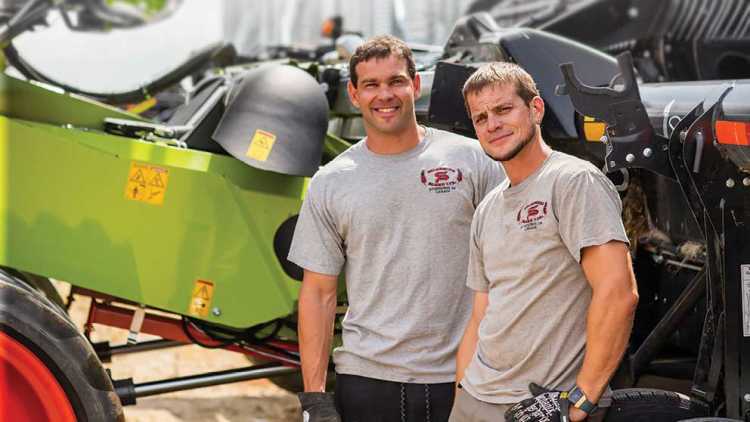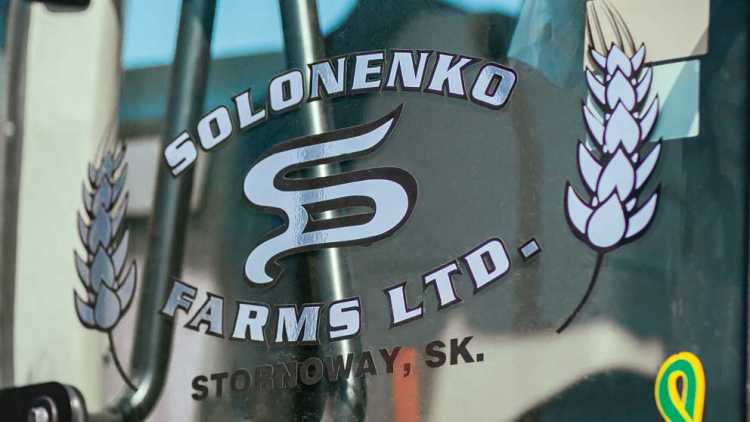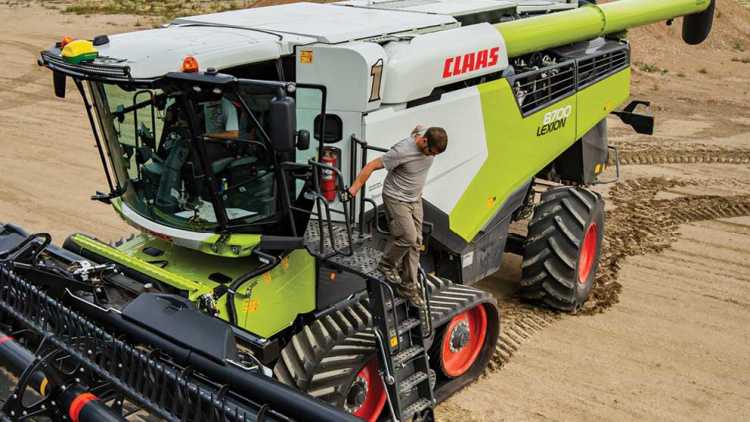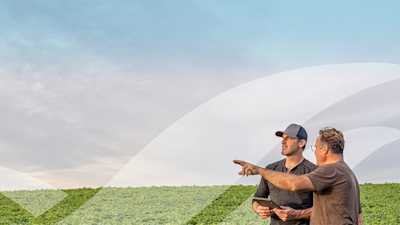Dad’s confidence helps Solonenko brothers carry on after tragedy

Many farmers struggle with transition. Loosening the reins on the family business and turning over control to the next generation is a difficult process for many families.

That wasn’t the case for Dennis Solonenko. He relished the idea of his two young sons taking active leadership roles on the family’s Stornoway, Sask., farm. As their boys grew, he and his wife, Sylvia, were delighted as both sons, Cortney and Devin, eagerly consumed every farm management challenge their parents set on their plate.
Early enthusiasm, early leaders
“I started showing interest when I was 12,” Cortney says. “That’s when [Dad] started talking to me about fertilizers and sharing little tidbits to get me interested.” When he was 19, Cortney was asked to manage the farm’s crop rotation, and before long, he and Devin were given responsibility for assessing equipment needs. “As we expanded in 2003 and 2004, we decided to buy a fourth combine. We looked at the payments and he asked us if we needed it and should we buy it.” The boys said yes. Their father agreed.
Dennis also brought his boys to farm auction sales. “He would explain that often the dad ran the farm and something tragic happened, and the kids didn’t know how to run the farm or there was no succession plan.” Cortney says his father didn’t want that to happen to them – he was determined to empower his sons and have them ready to run the operation.
Seamless transition despite tragedy
In April 2013, Dennis Solonenko died in a work accident. He was 63.
No one can prepare for such tragedy, but Dennis had trained his sons to move forward.
No one can prepare for such a tragedy, but Dennis had trained his sons to move forward. When their father passed, Cortney, 33 at the time, and Devin, 29, were running the 12,000-acre farm.
“By 2013, Dad had pretty much given us the reins,” Devin says. He and Cortney team up to give the farm a strong management partnership. Overall, the brothers share management duties, with Devin taking the lead on farm operations, including storage and trucking, while Cortney takes the lead on financing, marketing and employee management.
They both have strengths they bring to the overall management of the farm. “We sit together, meet and discuss things and then go forward,” Devin adds.
After their father passed, the brothers expanded aggressively, pushing the farm to 20,000 acres. Keen as they were to grow, Cortney admits much of the new land they were adding wasn’t always the best and hadn’t met their revenue targets. Today, S & D Solonenko Farms Ltd. has settled in at 16,500 acres with a tight focus on optimizing crop production on each acre.
Committed to the future
Carrying on after their father died was difficult for the Solonenko brothers. It was their dad’s confidence in them, Cortney says, that allowed the brothers to flourish and be prepared to run the farm.
The brothers also continue to heed their father’s commitment to technology and innovation. On the crop side, Cortney believes diversity is good for the farm and the business. Adding new crops to the mix, like corn, soybeans and peas, as well as different varieties of wheat and canola, has helped diversify crop rotation and manage risk. They’ve also had luck with faba beans, which have produced strong revenue.
Devin says the family’s commitment to continuous learning has played a key role in the farm’s success. “Dad always liked to try new stuff.” Dennis was a big believer in crop innovation and always worked with companies to establish test plots to evaluate the management technology, including everything from machinery to seed and crop protection products.


Testing technology on the farm is a great way to determine whether it’s a good fit and provides an adequate return on investment, Devin says.
Push for responsibility
Cortney doesn’t consider himself a farm transition expert, but he believes young farmers have to make sure they’re involved in the farm. Because not every parent has the same philosophy Dennis did, “it’s important to show them you’re responsible and you want responsibility.” It’s also necessary for the next farm generation to be patient. “Take it one day at a time and just push a little bit more to get more responsibility.”
As parents, the brothers intend to follow their father’s path. Between them, they have three children ranging from four to 13 years of age. “They’ll be encouraged to get involved in the farm. They’ll be given responsibility and by the time they reach 16 or 17, they usually know if that’s what they want,” Cortney says. “Just like Dad, we’ll start them young.”
Conversation, communication is key
Cortney’s last word of advice is communication. He believes it’s vital. “When you look at the relationship my brother and I have, we don’t have all the same interests, but we’re always involved. When I make the seeding plans, we meet and figure it out. We do the marketing together. We do the big purchases together – we’re always talking. We’re always communicating.”
Managing the farm and preparing for transition is a conversation they started with their father, and they plan to continue it for generations.
From an AgriSuccess article by Bernard Tobin.

Farms are expensive. For families in transition, ensuring the next generation has enough capital to buy the farm while leaving the previous generation with enough to retire can be challenging.

